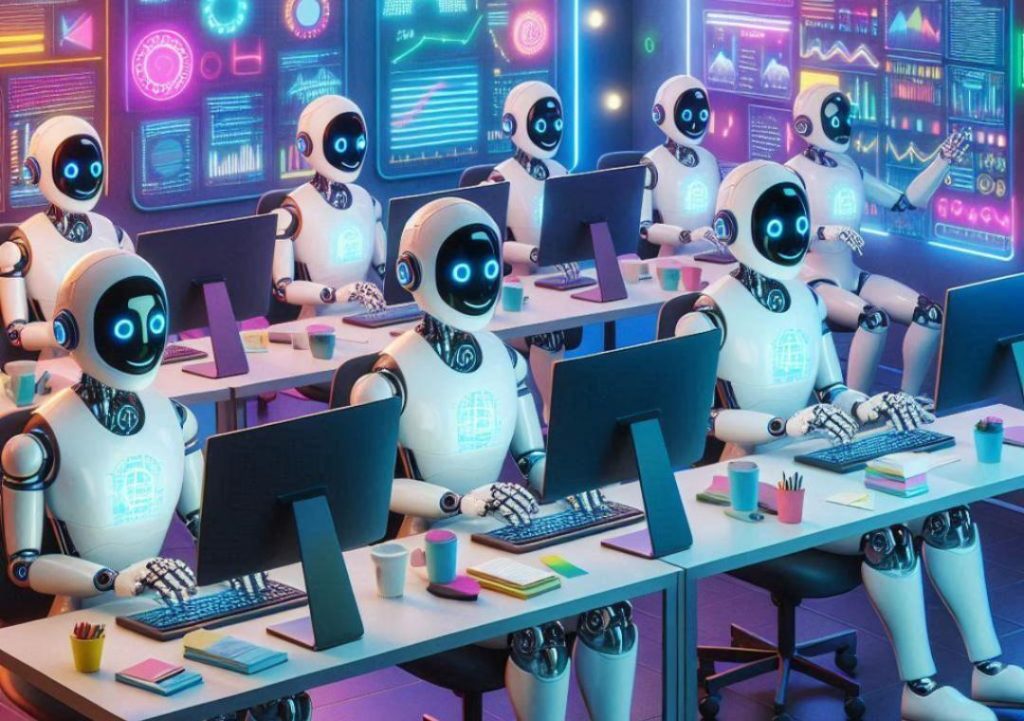
Smart Agents, Smarter Worlds: The Rise of Multiagent AI
Imagine a world where artificial intelligence (AI) agents are not just individual problem-solvers, but collaborative partners that work together to achieve common goals. This is the vision of multiagent AI, a rapidly evolving field that’s transforming the way we approach complex problems. In this blog post, we’ll delve into the world of multiagent planning, exploring its applications, benefits, and the potential for game-changing impact.
What is Multiagent AI?
Multiagent AI refers to the development of AI systems that can reason about multiple agents, including their own actions, goals, and behaviors. These agents can anticipate the moves of their peers, negotiate outcomes, and plan strategies to achieve shared or conflicting goals. This collaborative approach allows agents to adapt to dynamic environments, respond to changing circumstances, and make more informed decisions.
Key Characteristics of Multiagent AI
- Multiagent Reasoning: Multiagent AI systems can reason about multiple agents, considering their individual goals, behaviors, and constraints.
- Collaborative Planning: Agents work together to achieve shared or conflicting goals, using negotiation, communication, and coordination to reach agreements.
- Distributed Problem-Solving: Multiagent AI systems can divide complex problems into smaller, more manageable tasks, allowing agents to specialize and collaborate.
- Adaptability: Agents can adapt to changing environments, new information, and unexpected events, ensuring the system remains responsive and effective.
Applications of Multiagent AI
- Gaming: Multiagent AI is ideal for dynamic, interactive environments like gaming, where agents can negotiate and plan together in real-time.
- Disaster Response: In emergency situations, multiagent AI can facilitate communication and coordination between responders, ensuring a more effective response.
- Finance: Multiagent AI can be used in financial markets to simulate trading strategies, negotiate prices, and optimize portfolio performance.
- Healthcare: Multiagent AI can facilitate collaboration between healthcare professionals, patients, and caregivers, improving patient outcomes and reducing healthcare costs.
Benefits of Multiagent AI
- Improved Decision-Making: By considering multiple perspectives and adapting to changing circumstances, multiagent AI can make more informed decisions.
- Enhanced Collaboration: Multiagent AI systems can facilitate cooperation and negotiation, leading to more effective and efficient outcomes.
- Increased Adaptability: Agents can adapt to new information, unexpected events, and changing environments, ensuring the system remains responsive and effective.
- Scalability: Multiagent AI can be applied to complex systems with multiple agents, allowing for more accurate and comprehensive modeling.
Challenges and Limitations
- Complexity: Multiagent AI systems can be complex and difficult to design, test, and implement.
- Conflict Resolution: Agents may have conflicting goals or priorities, requiring effective conflict resolution mechanisms.
- Scalability: As the number of agents increases, the system’s complexity and computational requirements can grow exponentially.
- Trust and Transparency: Multiagent AI systems require trust and transparency in the agents and the decision-making process.
Conclusion
Multiagent AI is a rapidly evolving field that has the potential to transform the way we approach complex problems. By enabling agents to reason about their peers, anticipate moves, and plan strategies, multiagent AI can facilitate collaboration, improve decision-making, and increase adaptability. As this technology continues to advance, we can expect to see significant impacts in industries such as gaming, disaster response, finance, and healthcare.
News Source:
https://www.growthjockey.com/blogs/multiagent-planning-in-ai






